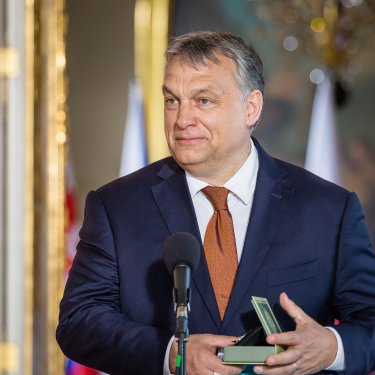European media that criticized the Hungarian Prime Minister asked to apologize

European media that criticized Prime Minister Viktor Orbán’s coronavirus state of emergency have been asked to apologize by Hungary’s ambassadors in the countries where they are based. Reporters Without Borders (RSF) condemns this ploy, which aims to intimidate foreign reporters in Hungary and compounds the existing pressure on Hungary’s own media.
In Vienna, Hungarian ambassador Andor Nagy posted a letter on his embassy’s website on 30 May asking a number of Austrian media outlets to “apologize for repeating the [false] allegations” about restrictions on press freedom and on parliament’s powers.
The apologies are owed “not only to the elected government of Hungary, but also to the vast majority of the Hungarian population (...) and last but not least (...) to your readers/viewers/public,” the letter said.
In Switzerland, the Tribune de Genève newspaper received a similar request for an apology from Hungary’s ambassador to Bern, István Nagy. In Finland, it was Viktor Orbán’s spokesman who demanded apologies from two experts on Hungarian politics who had criticized the Prime Minister’s measures in the Ilta-Sanomat daily newspaper and on YLE, the public broadcaster.
In Sweden, Hungarian ambassador Adrien Müller complained on the government website about “a shocking display of dismissing Hungary’s right of reply”, because Sweden’s leading daily, Dagens Nyheter, refused to publish his letter about “responsible journalism.”
“After restricting press freedom in Hungary, the Hungarian government now wants to silence the foreign media,” said Pavol Szalai, the Head of RSF’s European Union and Balkans Desk. “Given the content of these apology demands and the tone with which they were presented, they clearly constitute an unacceptable intimidatory operation, one that could have a chilling effect on foreign newsrooms and their correspondents in Hungary.”
In an attempt to show that the international media were “twisting the facts” and making “groundless criticisms,” the government’s apology requests insisted that the state of emergency and suspension of parliament would end soon. The end of the state of emergency was indeed voted on 16 June, but measures taken by the government to combat the pandemic did indeed affect the already badly weakened independent press.
The threat of prison sentences of up to five years for spreading “fake news” about the coronavirus, deplored by RSF, clearly had a chilling effect on both journalists and their sources, including medical staff. The same is true for the spectacular arrest - published on the police website - of two retirees (of whom one is a local opposition activist) for criticizing government measures on Facebook.
The state of emergency also restricted independent journalists’ access to information by extending the period within which the public administration was required to respond to freedom of information requests from 15 to 45 days, and even to 90 days when a large amount of data was involved.
“No editor or journalist can avoid the chilling effect of the regime's tactics of fear,” Gábor Horváth, the Népszava newspaper’s foreign news editor, told RSF. “We are forced to consult our lawyer much more frequently than before. In many cases, information is deliberately held back to force us into a murky territory, while the regime is out there waiting for the right moment to strike.”
Some journalists told RSF they had not been particularly affected by the measures taken under the state of emergency. But Miklós Hargitai, the Chairman of the National Association of Hungarian Journalists, said the threat of imprisonment “had significantly changed the operations of editorial staff” in order to avoid judicial proceedings against journalists and their sources. And the editor of a very popular news website said he feared more “self-censorship.”
Hungary is ranked 89th out of 180 countries in RSF's 2020 World Press Freedom Index.



